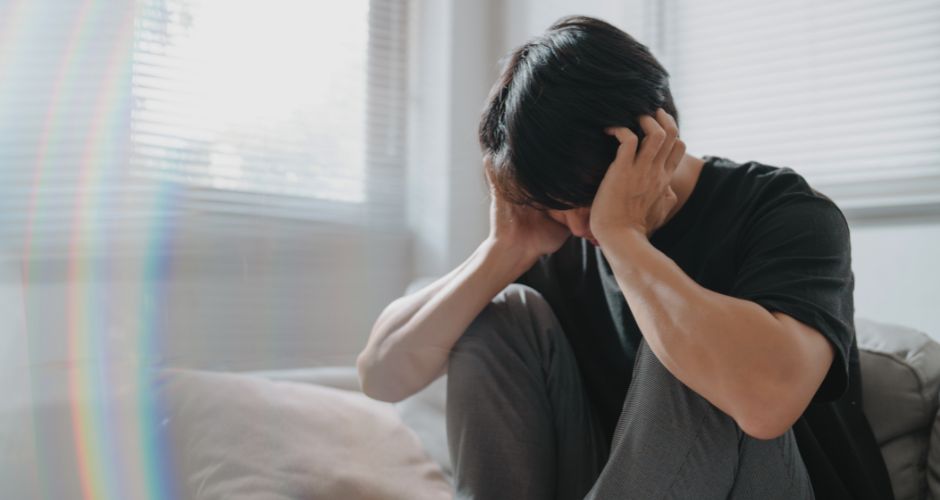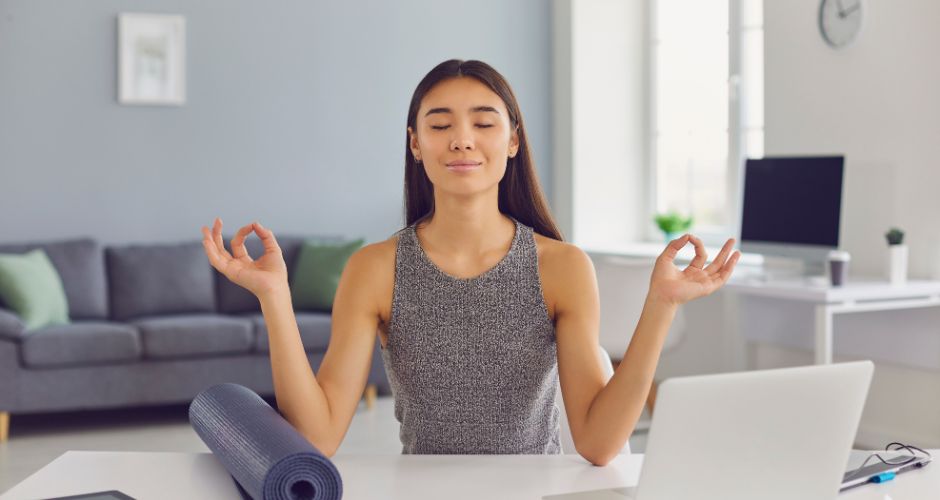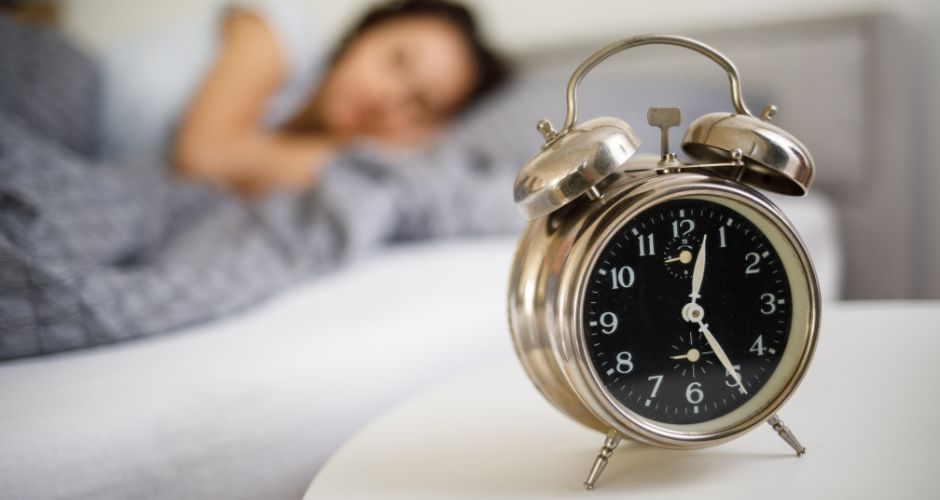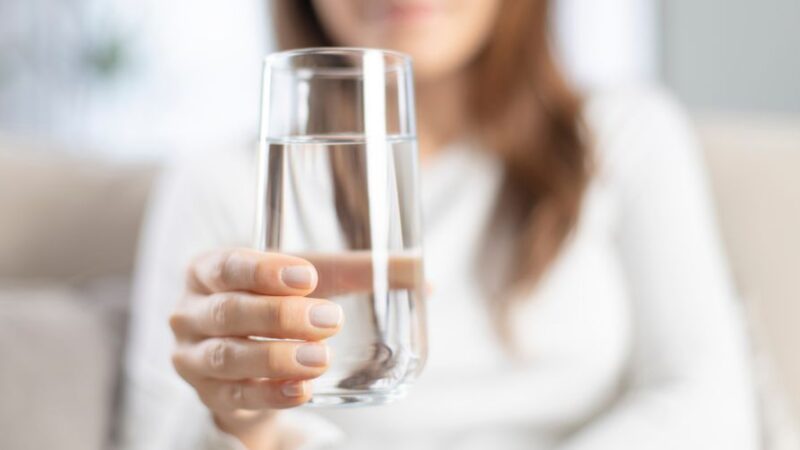How to Cope with Anxiety Without Medication – 2024

In a world that often feels like a whirlwind of stress and uncertainty, the need for effective anxiety management strategies has never been more pressing. While medication can be a valuable tool in treating anxiety, it’s not the only path to finding relief.
Whether you’re seeking natural remedies or complementary strategies to supplement your treatment, this guide how to cope with anxiety without medication will equip you with the tools to navigate the labyrinth of anxiety without relying solely on medication.
✔️Mindfulness and Meditation
Mindfulness is being fully present in the moment without judgment. It involves paying attention to your thoughts, emotions, and physical sensations without trying to change or suppress them. The key is to observe your experiences with curiosity and kindness.
Meditation is a structured practice that cultivates mindfulness. It encourages relaxation, self-awareness, and emotional regulation. Meditation comes in various forms, such as mindfulness meditation, loving-kindness meditation, and body-scan meditation.

How Mindfulness and Meditation Reduce Anxiety
- Stress Reduction: Mindfulness and meditation can lower stress levels, reducing the body’s production of stress hormones like cortisol. This, in turn, can alleviate anxiety symptoms.
- Emotion Regulation: By observing your emotions without judgment, you become better at recognizing and managing them. This can help you respond more skillfully to anxiety triggers.
- Improved Focus: Regular meditation can enhance concentration, making it easier to stay calm and composed in anxious situations.
- Enhanced Self-Awareness: Mindfulness and meditation help you become more aware of the thoughts and behaviours that contribute to your anxiety. With this insight, you can work on changing unhelpful patterns.
How Mindfulness and Meditation Help Overcome Depression
- Emotional Resilience: Meditation practices can boost your emotional resilience, helping you bounce back from depressive episodes more quickly.
- Reduced Rumination: Mindfulness discourages rumination, the repetitive and negative thought patterns common in depression. Instead, it encourages you to focus on the present moment.
- Positive Self-Image: Loving-kindness meditation fosters self-compassion and self-acceptance, which are crucial for battling low self-esteem often associated with depression.
- Increased Feelings of Happiness: Regular meditation can lead to increased activity in areas of the brain associated with positive emotions, fostering a more optimistic outlook on life.
✔️Regular Exercise
When it comes to managing anxiety and depression without medication, one of the most powerful tools at your disposal is regular exercise. Physical activity has a profound impact on your mental health and can significantly reduce the symptoms of these conditions.

The Connection Between Exercise and Mental Health
Regular exercise offers a wide range of benefits for your mental well-being. Here are some of the key ways in which physical activity can help alleviate anxiety and depression:
- Release of Endorphins: Exercise triggers the release of endorphins, often called “feel-good” hormones. These chemicals can boost mood, reduce stress, and create a sense of well-being.
- Reduction in Stress Hormones: Physical activity lowers the levels of stress hormones like cortisol in your body. Elevated cortisol levels are associated with anxiety, so reducing them can help alleviate symptoms.
- Improved Sleep: Regular exercise can promote better sleep, which is crucial for managing anxiety and depression. Quality rest allows your mind and body to recover and reduces symptoms of these conditions.
- Enhanced Self-Esteem: Achieving fitness goals through exercise can boost your self-esteem and self-confidence. This can be especially helpful in battling depression, where self-worth issues are common.
- Distraction from Negative Thoughts: Engaging in physical activities provides a healthy distraction from negative thought patterns often associated with anxiety and depression.
✔️Balanced Diet
Maintaining a balanced diet is not only essential for your physical health but also plays a crucial role in managing anxiety and depression. The food you consume has a significant impact on your mood and overall well-being. Check here how to manage depression and anxiety without medication with balanced diet.

The Diet-Mood Connection
The link between diet and mental health is becoming increasingly evident. Research suggests that certain nutrients can influence brain function and the production of mood-regulating chemicals. Here’s how a balanced diet can positively affect your mental well-being:
- Steady Blood Sugar Levels: Consuming complex carbohydrates, like whole grains, helps maintain steady blood sugar levels, preventing mood swings and irritability often linked to poor blood sugar control.
- Essential Nutrients: Nutrients such as omega-3 fatty acids, B vitamins, and amino acids are crucial for producing neurotransmitters like serotonin and dopamine, which play a key role in regulating mood.
- Gut-Brain Connection: A healthy diet supports the balance of gut bacteria, which can influence brain health and reduce symptoms of anxiety and depression.
- Inflammation Reduction: Chronic inflammation is associated with mental health issues. An anti-inflammatory diet, rich in fruits, vegetables, and whole foods, can help reduce inflammation and impact mental well-being.
✔️Quality Sleep
The importance of quality sleep in maintaining good mental health cannot be overstated. Getting sufficient, restorative sleep is a fundamental aspect of managing anxiety and depression naturally.

The Sleep-Mental Health Connection
Sleep and mental health are intimately intertwined. Poor sleep can exacerbate symptoms of anxiety and depression, while anxiety and depression can, in turn, disrupt your sleep patterns. Here are some key ways in which sleep influences your mental well-being:
- Emotional Regulation: Adequate sleep is essential for regulating emotions. Without it, you may be more prone to irritability, mood swings, and heightened stress.
- Cognitive Function: Sleep supports cognitive functions such as problem-solving, decision-making, and memory. When you’re sleep-deprived, your ability to manage the challenges of anxiety and depression is compromised.
- Stress Response: Poor sleep can increase the body’s stress response, making it harder to manage and cope with the stressors that can trigger anxiety and depression.
- Physical Health: Sleep plays a role in overall physical health, including the immune system and inflammation, which can indirectly affect mental health.
The Impact of Quality Sleep on Mental Health
Improving the quality of your sleep can have a profound impact on your mental health. With better sleep, you may find it easier to manage anxiety and depression. You’ll be more resilient to stress, better equipped to regulate your emotions, and sharper in your cognitive abilities. In essence, quality sleep can act as a natural reset button for your mental well-being.
✔️Supportive Social Connections
In the journey to cope with anxiety and depression without medication, one of the most potent sources of healing and resilience lies in supportive social connections. Building and maintaining meaningful relationships can have a profound impact on your mental well-being.
The Social Connection-Mental Health Nexus
Human beings are inherently social creatures. Our need for connection and belonging is deeply rooted in biology and psychology. When it comes to managing anxiety and depression, here’s how supportive social connections can make a difference:
- Emotional Support: Trusted friends and family provide a safe space to share feelings, fears, and experiences. Opening up and receiving understanding can alleviate the emotional burden of anxiety and depression.
- Reduced Isolation: Isolation is a common symptom of depression and can exacerbate both depression and anxiety. Social connections help combat feelings of isolation, providing a sense of belonging.
- Stress Reduction: Positive social interactions trigger the release of oxytocin, a hormone that reduces stress and promotes well-being. This can be particularly helpful in managing anxiety.
- Increased Resilience: Supportive relationships can bolster your emotional resilience, making it easier to bounce back from challenging situations or episodes of anxiety and depression.
✔️Cognitive Behavioral Therapy (CBT)
Cognitive Behavioral Therapy, commonly known as CBT, is a highly effective psychological approach to managing anxiety and depression without medication. It is a structured, evidence-based therapy that empowers individuals to understand and change their thought patterns and behaviours, fostering a positive transformation in their mental health.

Benefits of CBT for Anxiety and Depression
- Empowerment: CBT empowers individuals by giving them the tools to manage their mental health. It emphasizes personal responsibility and active participation in the healing process.
- Structured Approach: CBT offers a structured and goal-oriented framework, which can be reassuring for individuals who seek clarity and direction in their treatment.
- Short-Term and Long-Term Effectiveness: CBT is effective for many individuals and can produce noticeable results relatively quickly. It also equips individuals with long-term coping strategies.
- Focus on the Present: CBT primarily concentrates on the present, helping individuals address current issues and challenges rather than delving deeply into past traumas.
- Tailored to Individual Needs: CBT can be customized to address an individual’s specific challenges and goals, making it a highly personalized approach to therapy.
- Reduction in Relapse: Research has shown that CBT can reduce the risk of relapse in individuals who have experienced anxiety or depression.
✔️Herbal Remedies
Herbal remedies have been used for centuries to alleviate symptoms of anxiety and depression naturally. While they may not replace the need for professional medical care, some herbal options can provide additional support for your mental health. In this article, we’ll explore a selection of herbal remedies that are commonly used to help manage anxiety and depression.
- St. John’s Wort (Hypericum perforatum)
St. John’s Wort is one of the most well-known herbal remedies for depression. It contains compounds that may have a positive impact on mood. Some research suggests that it may be effective in managing mild to moderate depression. It’s essential to use standardized preparations of St. John’s Wort to ensure quality and consistency.
- Lavender (Lavandula angustifolia)
Lavender is famous for its calming and soothing properties. It can help reduce symptoms of anxiety and improve sleep quality. You can use lavender as an essential oil in aromatherapy, or you may find it in herbal teas and supplements.
- Chamomile (Matricaria chamomilla)
Chamomile is known for its calming effects and can help alleviate symptoms of anxiety and depression. It’s commonly consumed as a tea, which can promote relaxation and reduce stress.
- Valerian (Valeriana officinalis)
Valerian root is often used as a natural remedy for anxiety and sleep disorders. It can help reduce nervousness and promote a sense of calm. Valerian is available in various forms, such as capsules, tinctures, and teas.
- Passionflower (Passiflora incarnata)
Passionflower is another herbal remedy with potential anxiety-reducing effects. It can be consumed as a tea or taken in supplement form. Some studies suggest that passionflower may be as effective as benzodiazepines for managing anxiety.
- Rhodiola (Rhodiola rosea)
Rhodiola is an adaptogenic herb that may help reduce stress and improve mood. It’s believed to work by regulating the body’s stress response. Rhodiola is available in supplement form.
✔️Creative Outlets
Engaging in creative activities can be a powerful way to manage anxiety and depression naturally. Expressing your thoughts, emotions, and experiences through creative outlets can provide relief and help you navigate the challenges of these conditions. How to overcome severe depression without medication with benefits of creative expression and various outlets you can explore to support your mental well-being.
The Healing Power of Creativity
Creativity has the potential to offer significant emotional and mental relief. Here’s how creative outlets can contribute to managing anxiety and depression:
- Emotional Release: Creative activities provide a safe space to express and release pent-up emotions, reducing the emotional burden of anxiety and depression.
- Distraction from Negative Thoughts: Engaging in creative tasks can divert your focus from negative thought patterns, promoting a sense of mindfulness and flow.
- Sense of Accomplishment: Completing creative projects can boost your self-esteem and sense of accomplishment, which can be particularly helpful in managing depression.
- Mindful Relaxation: Many creative activities, such as painting or crafting, encourage mindfulness, promoting relaxation and reducing stress.
✔️Set Realistic Goals
Setting realistic goals is a fundamental aspect of managing anxiety and depression naturally. It can provide structure, motivation, and a sense of purpose, which are crucial in coping with these conditions. Check here ways to cope with anxiety without medication with setting achievable goals.
The Significance of Realistic Goals
Establishing realistic goals when dealing with anxiety and depression serves several essential purposes:
- Motivation: Goals can give you a sense of direction and motivation, helping you overcome the inertia often associated with these conditions.
- Sense of Achievement: Achieving small, realistic goals can boost your self-esteem and confidence, which are often diminished in anxiety and depression.
- Structure and Routine: Goals can help establish a daily structure and routine, reducing feelings of aimlessness and uncertainty.
- Focus: They provide a focal point for your attention, which can help you shift your focus away from negative thoughts and emotions.
Examples of Realistic Goals for Anxiety and Depression
Here are some examples of realistic goals tailored to managing anxiety and depression:
- Goal: Take a 10-minute walk three times a week.
- Rationale: Regular physical activity can help reduce symptoms of anxiety and depression.
- Goal: Write in a gratitude journal each night before bed.
- Rationale: Focusing on positive aspects of your life can improve your mood and outlook.
- Goal: Attend a support group meeting once a month.
- Rationale: Connecting with others facing similar challenges can provide emotional support.
- Goal: Limit screen time to 30 minutes before bedtime.
- Rationale: Reducing exposure to screens can improve sleep quality.
- Goal: Learn and practice relaxation techniques for 10 minutes daily.
- Rationale: Relaxation exercises can help reduce stress and anxiety.
Conclusion
While medication may be necessary for some individuals, it’s important to explore natural approaches to managing anxiety and depression. By incorporating mindfulness, exercise, a healthy diet, a supportive network, and other strategies into your daily life, you can improve your mental well-being without relying solely on medication.
Remember, it’s essential to consult with a healthcare professional to determine the best approach for your specific situation and don’t hesitate to seek professional help when needed. You can recover from anxiety and depression without medication by taking control of your life and implementing these natural coping strategies.






One thought on “How to Cope with Anxiety Without Medication – 2024”